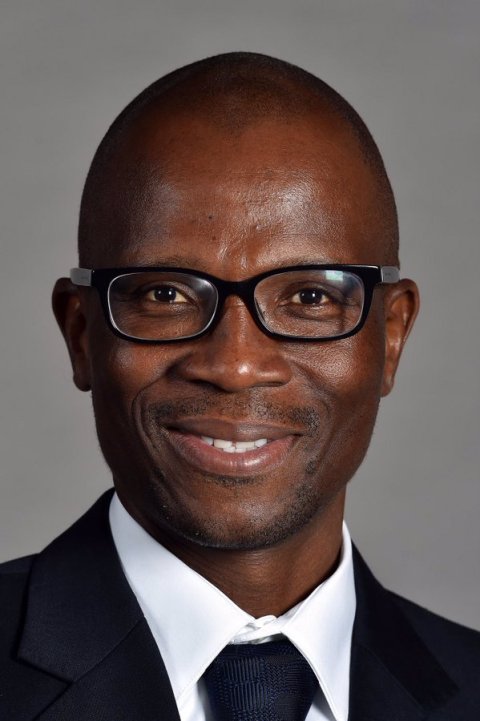SA Eyes Fiscal Stability with Reforms, Metro Services Overhaul and Investor Support
Masondo acknowledged that South Africa’s fiscal path faces significant challenges but stressed that government is taking deliberate measures to restore confidence.

- Country:
- South Africa
South Africa is accelerating its efforts to achieve fiscal sustainability, unlock economic growth, and crowd in private sector investment, says Deputy Minister of Finance Dr David Masondo. Speaking at the RMB Morgan Stanley 2025 Investor Conference on Monday, Masondo outlined a package of reforms that balance fiscal discipline with structural transformation, particularly through partnerships with investors and municipalities.
Balancing Fiscal Discipline with Growth
Masondo acknowledged that South Africa’s fiscal path faces significant challenges but stressed that government is taking deliberate measures to restore confidence.
“South Africa’s fiscal path is not without challenges. But we are taking deliberate steps—restoring expenditure discipline, stabilising debt, advancing structural reforms, and strengthening institutions,” he said.
Fiscal sustainability, he explained, means managing spending, taxation, and debt responsibly to meet both current and future obligations without creating instability.
“The task is to balance caution with opportunity, ensuring that we honour our obligations while creating the space for growth and investment. Together, government and financial markets can help place South Africa’s economy on a more resilient, inclusive, and sustainable footing,” he added.
Operation Vulindlela Phase II and Metro Trading Services Reform
At the heart of government’s reform drive is Operation Vulindlela Phase II, a joint initiative between the Presidency and National Treasury. One of its flagship projects is the Metro Trading Services Reform, designed to address weak municipal service delivery in South Africa’s biggest cities.
“Our metros are the engines of the economy, hosting the bulk of our population, businesses, and jobs. Yet years of underinvestment, weak management, and unreliable service delivery in electricity, water, sanitation, and waste have constrained growth,” Masondo said.
The reform aims to create financially ring-fenced, professionally managed utilities within metros, restoring both credibility and sustainability in core services.
A key feature is the introduction of a R54 billion performance-linked incentive grant, strictly conditional on council-approved turnaround strategies and adherence to governance standards.
“This is not money for promises; it is money for performance. Only metros that demonstrate measurable improvements in service delivery, financial performance, and governance will qualify,” Masondo explained.
Crucially, for every rand disbursed in incentive funding, metros are expected to leverage an additional rand, mobilising at least R108 billion into infrastructure projects.
Unlocking Investment Opportunities
The Deputy Minister stressed that the reforms will make municipalities more attractive to investors by reducing risks and improving governance.
“For financial institutions and investors, this reform creates a new opportunity. Lower risk, greater transparency, and stronger governance will open the door for financing water, sanitation, energy, and waste infrastructure—projects that improve lives and generate sustainable returns,” he said.
He invited investors to actively participate: “Support our metros, finance the infrastructure that will keep our cities running, and share in the long-term benefits of a stronger urban economy.”
Tackling the Debt Burden
Turning to fiscal indicators, Masondo pointed to progress in maintaining a primary budget surplus—where revenue exceeds non-interest spending—for the past three years. This has been crucial in reducing the debt burden and lowering debt-service costs.
“This outcome reduces the sovereign risk premium. As debt-service costs decline, savings can be redirected toward fiscal buffers and productive infrastructure, reducing the cost of doing business and supporting growth,” he noted.
South Africa’s gross borrowing requirement is projected at:
-
R434 billion in 2026/27, before rising to
-
R588 billion in 2027/28.
To meet foreign exchange commitments, government expects to raise US$14.6 billion over the medium term.
Expanding Financing Instruments
Masondo said South Africa will continue to rely on a balanced mix of domestic and foreign borrowing with predictability and transparency as guiding principles. While fixed-rate bonds remain central, the financing toolkit is being expanded to include:
-
Floating-rate notes
-
Treasury bills
-
Green bonds and sustainable finance instruments
-
Sukuk (Islamic finance bonds)
“These instruments not only diversify government’s funding but also align with investor appetite and long-term sustainability,” Masondo said.
A Path Toward Stability and Growth
The Deputy Minister’s message was clear: South Africa is committed to responsible fiscal management and structural reform. By stabilising debt, creating efficient urban utilities, and opening new channels for private investment, government aims to build a resilient, inclusive economy.
With improved service delivery in metros, stronger fiscal discipline, and innovative funding mechanisms, South Africa seeks to turn its fiscal challenges into opportunities for sustainable growth.










